What I Noticed Today (Genesis 31-33)
Genesis 31
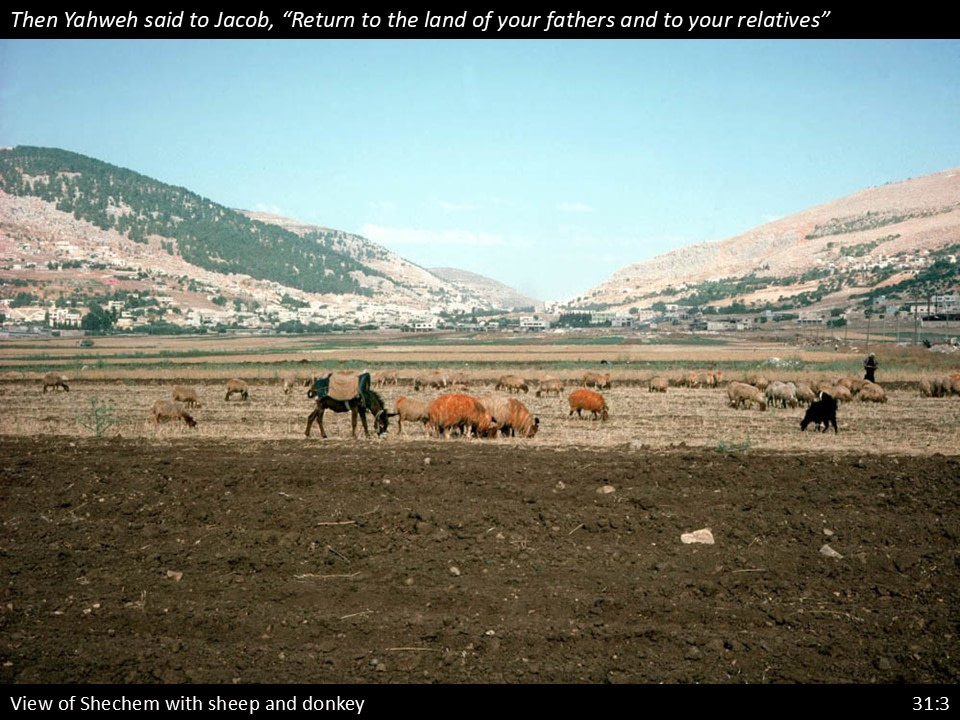
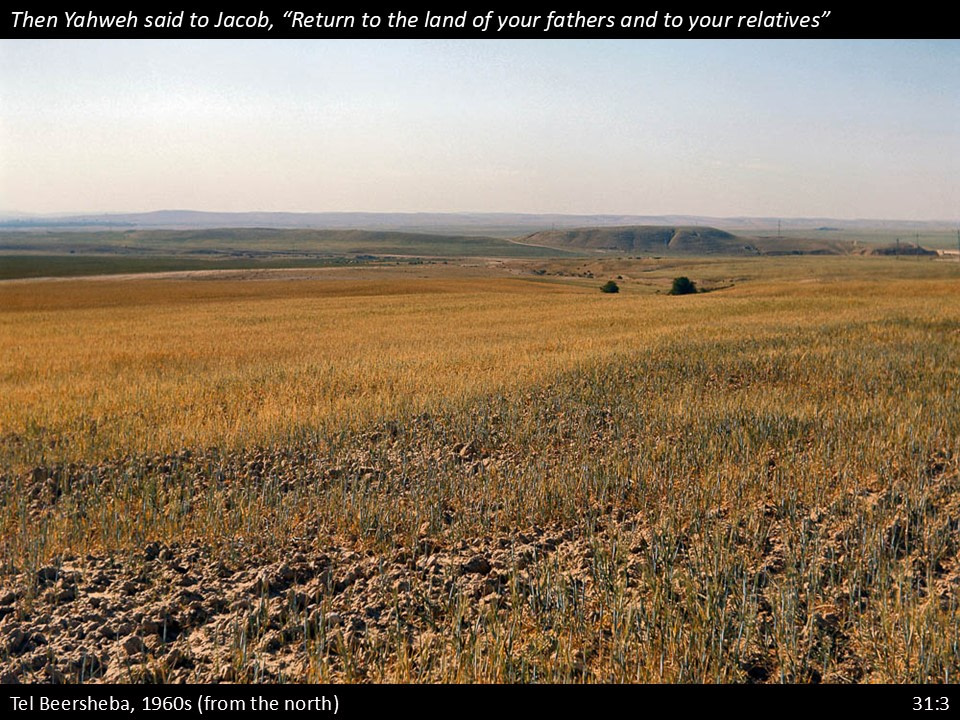
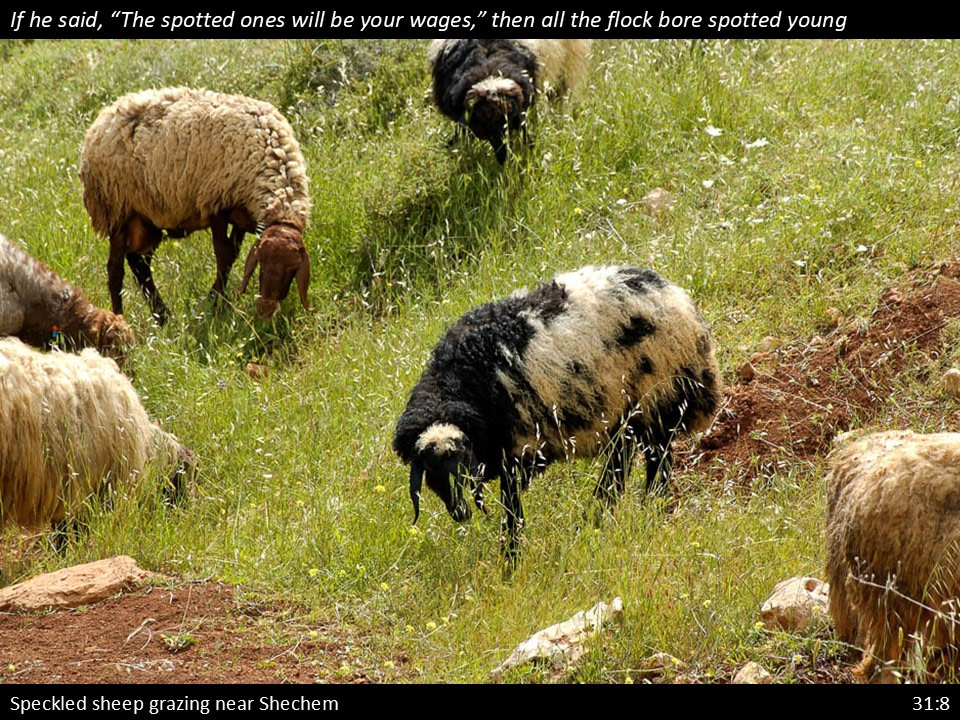
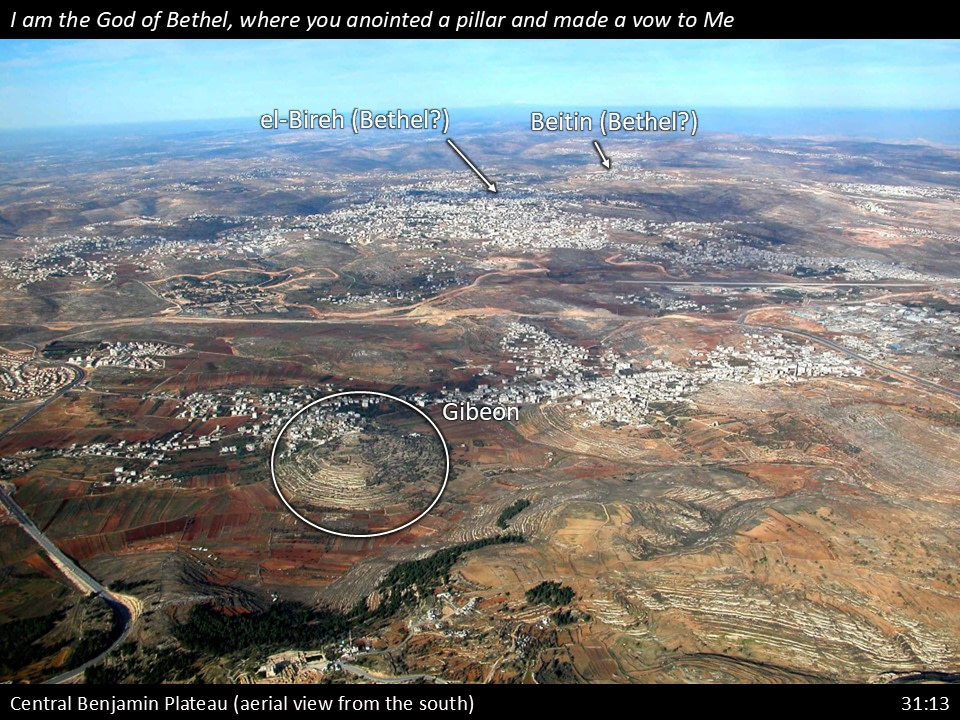
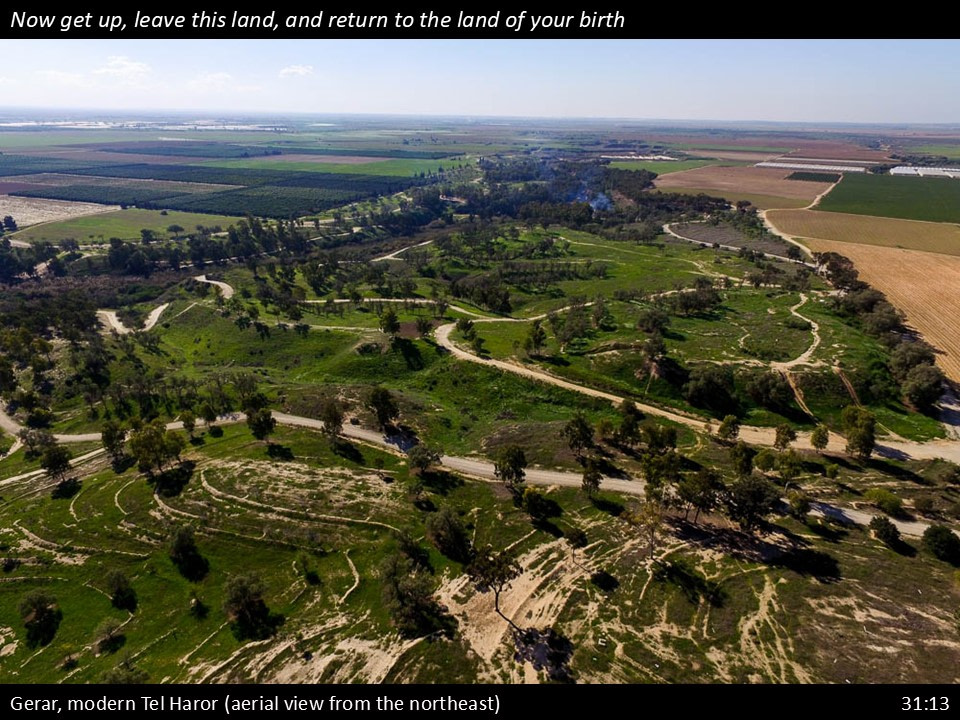
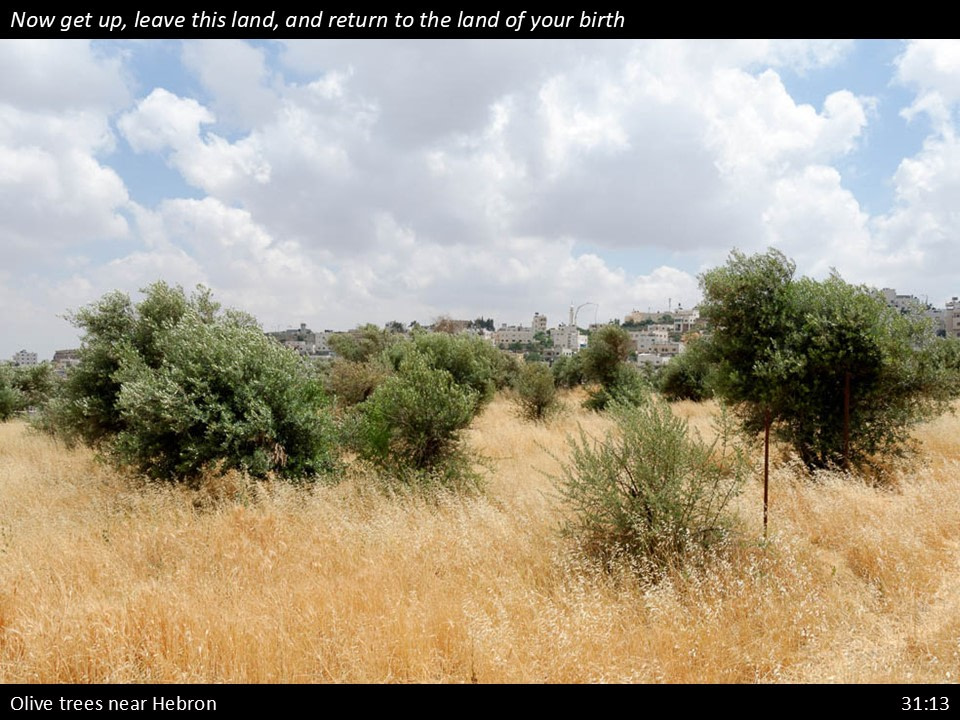
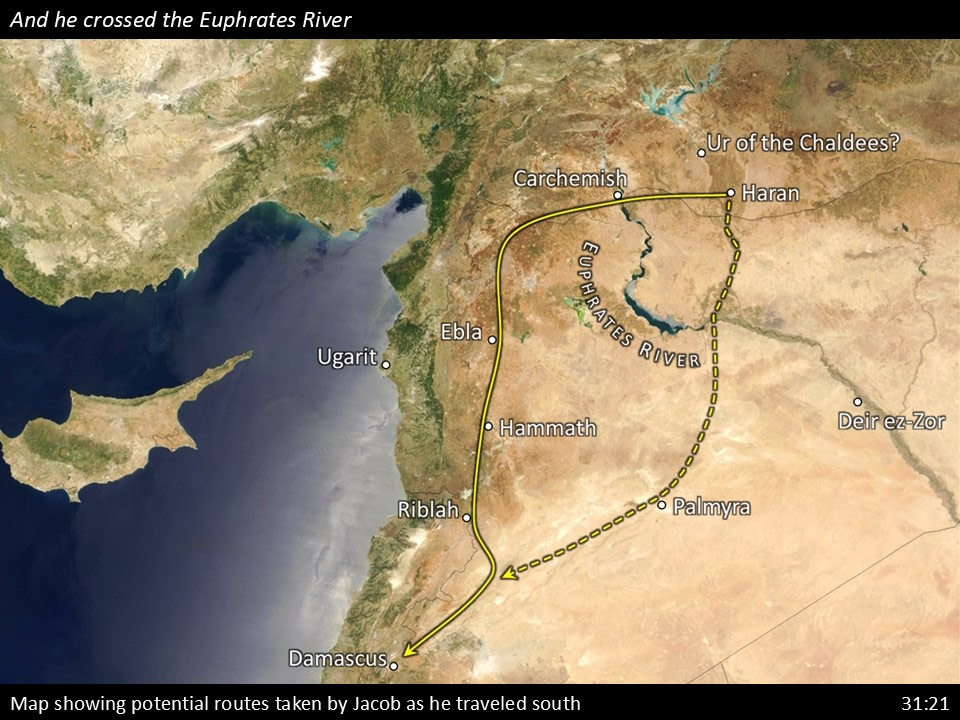
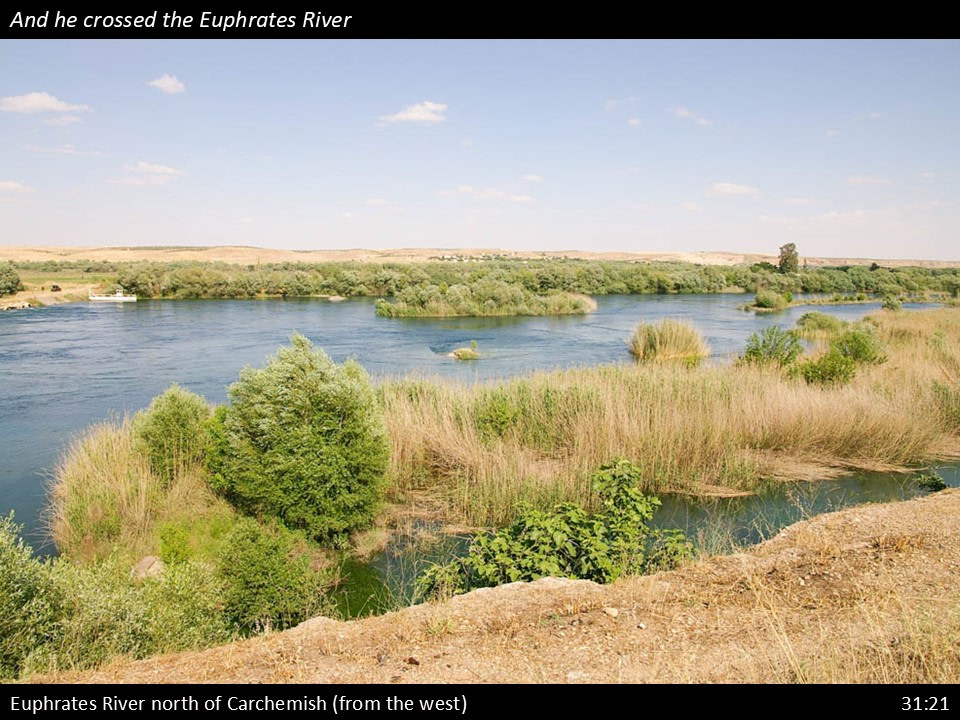
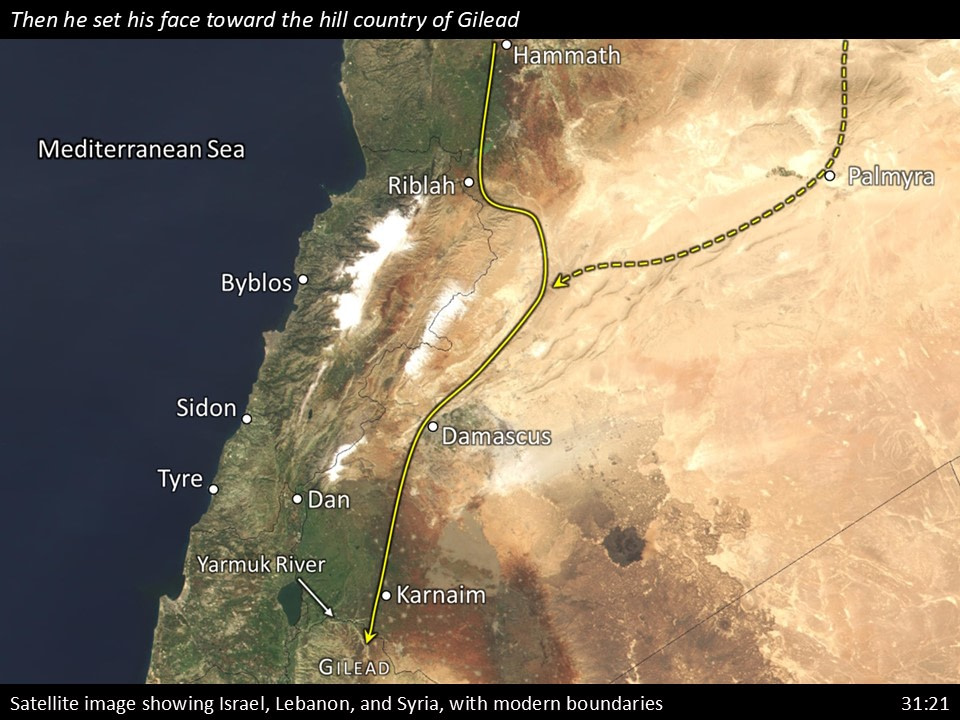

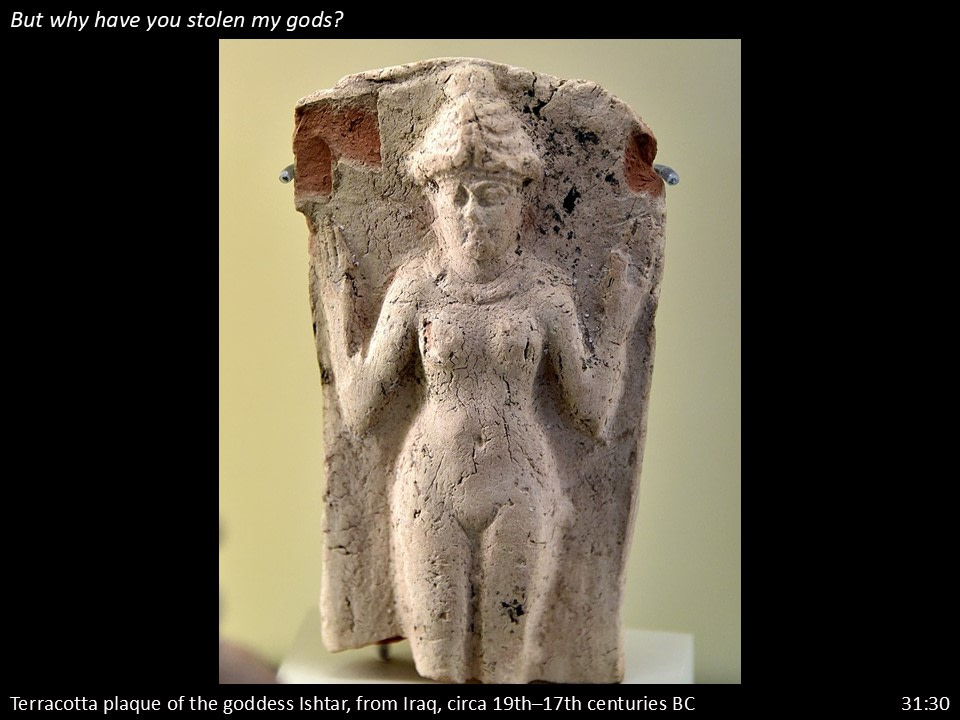
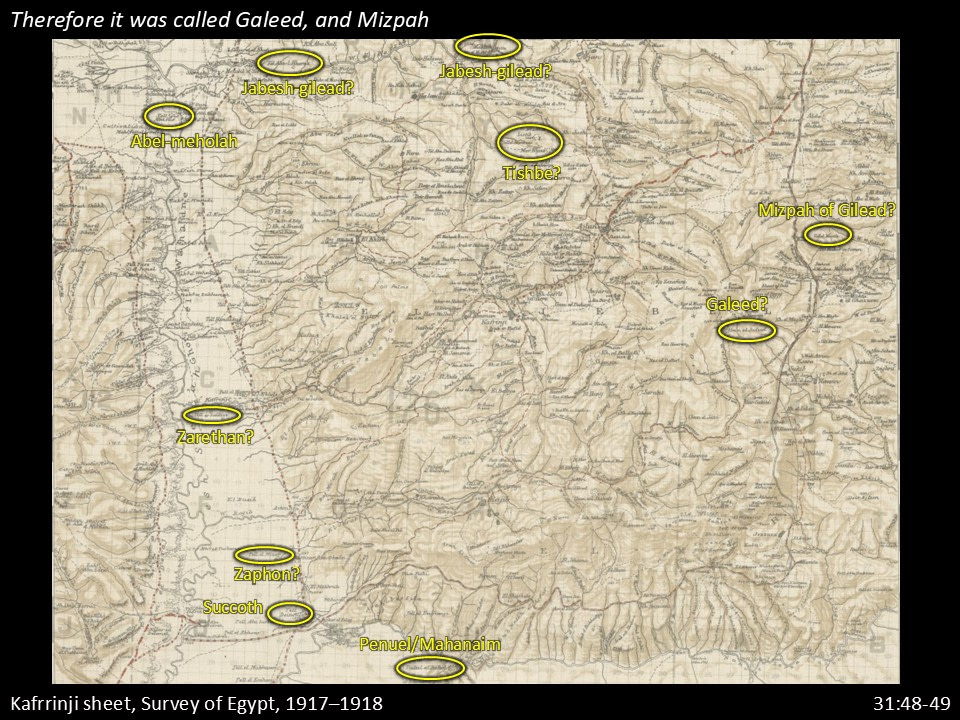
In verses 1-21, Jacob leaves Laban to return to Canaan:
- Great resentment formed between Laban and his sons against Jacob because Jacob continued to gain wealth at Laban’s expense.
- The Lord told Jacob to return home and promised to be with him.
- Jacob gathered Leah and Rachel and explained to them how their father’s attitude toward him had changed, how his father had changed his wages several times, but that the Lord had always protected and blessed them.
- Then Jacob explained to Leah and Rachel about the dream from God and His instruction to return home to his native land.
- Leah and Rachel both answered they felt like outsiders in their father’s house, so do whatever God has told you.
- Jacob then gathered all his possessions, the flocks, and herds, and set out with his family to go to the land of his father Isaac in Canaan.
- Before they left, Rachel snuck into her father’s house and stole his idols.
Note: The household idols Rachel stole were figurines of deities, indicating a pagan influence in Laban’s household. Traditionally, these household idols were thought to provide protection to the household.
- Jacob left without telling Laban that he was leaving. He fled away from Paddan-Aram crossed the Euphrates River (in modern-day Syria) and headed for the hill country of Gilead.
In verses 22-35, Laban chases after Jacob and confronts him:
- After three days, Laban was told Jacob had fled, so he gathered his relatives and pursued Jacob for seven days until he caught up with him at Mt. Gilead.
- God came to Laban at night in a dream and warned him not to say anything to Jacob, good or bad.
Note: God’s warning to Laban about Jacob is another example of God fulfilling His promise to protect Jacob. It is also an indication that Laban may have been angry enough about his missing idols to harm Jacob.
- When Laban and his brothers caught up to Jacob, they pitched their tents in the hill country, and Laban confronted Jacob about leaving without saying goodbye. He claimed he would have thrown a feast of celebration for them. Laban accused Jacob of acting foolishly.
- Laban admitted that he had planned to harm Jacob, but God had warned him in a dream not to say anything good or bad. But, Laban asked, why did you steal my household idols?
- Jacob answered he left in secret because he was afraid Laban would have taken Leah and Rachel away from him by force. He also told Laban he knew nothing of the stolen idols. Search the camp. Anyone with your idols will die.
- So Laban searched the camp starting with Jacob’s tent, then Leah’s, and finally Rachel’s. Rachel had hidden the idols in a camel’s saddlebag that she sat on as he searched. She claimed she could not get up because she was on her period.
In verses 36-55, Jacob makes a covenant with Laban:
- After Laban searched and found nothing, Jacob let loose a tirade of complaints at Laban about how he had taken care of Laban’s property for 20 years (14 for the daughters, and 6 for the flocks). Laban had changed his wages ten times, but God had blessed him. Otherwise, Jacob said, Laban would have sent him away with nothing.
Note: Jacob refers to God in three ways: as the “God of my father,” the “God of Abraham,” and the “Fear of Isaac.” The name “Fear of Isaac” for God appears only in this chapter.
- Laban claims the daughters, sons, and flocks are all his, but he can do nothing for his daughters now, so he suggests he and Jacob make a covenant.
- So Jacob and his relatives gathered stones and made a mound.
- Laban named the mound Jegar-sahadutha (Aramaic for “Mound of Witness”), but Jacob named it Galeed (Hebrew for “Mound of Witness”).
- Laban said the mound was a witness between them. The Lord would watch between you and me when we are out of each other’s sight.
- Laban warned Jacob not to mistreat his daughters because God was a witness.
- Laban also said the mound was a marker that he would not pass by it to do Jacob harm, and Jacob would not pass by it to do Laban harm.
- Laban swore by the God of Abraham, the gods of Nahor, and the God of their father (Terah), who would be judges over the covenant.
Note: “Mizpah” means watchtower.
- Jacob swore by the “Fear of his father, Isaac.”
- Then Jacob offered a sacrifice and invited everyone to eat a meal to commemorate the covenant.
- Laban got up early the next morning, kissed his daughters and grandchildren, blessed them, and returned home.
Genesis 32
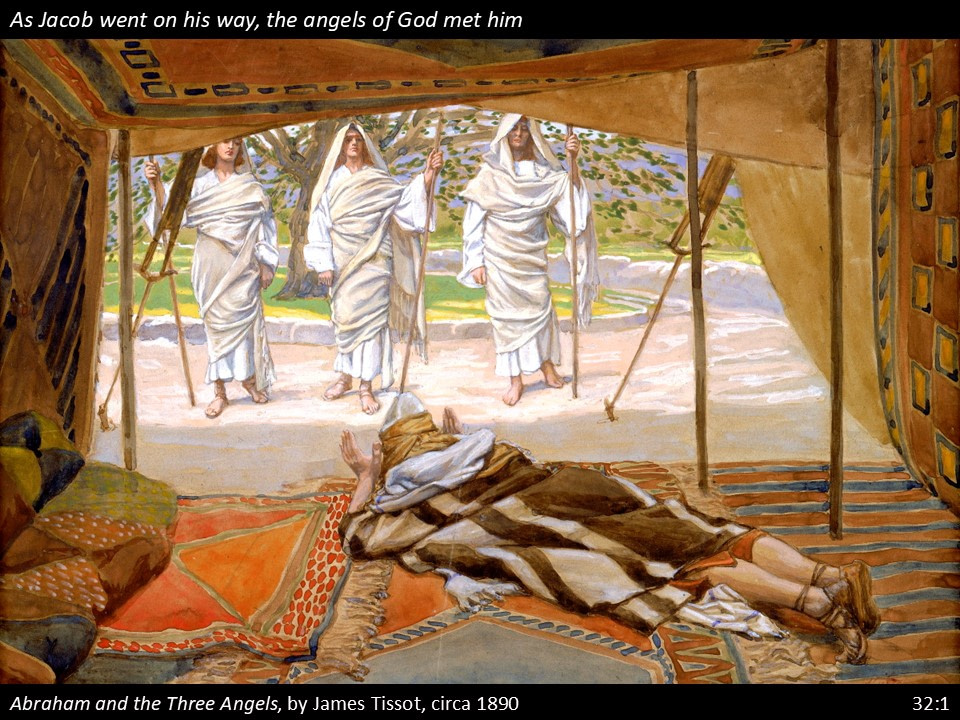
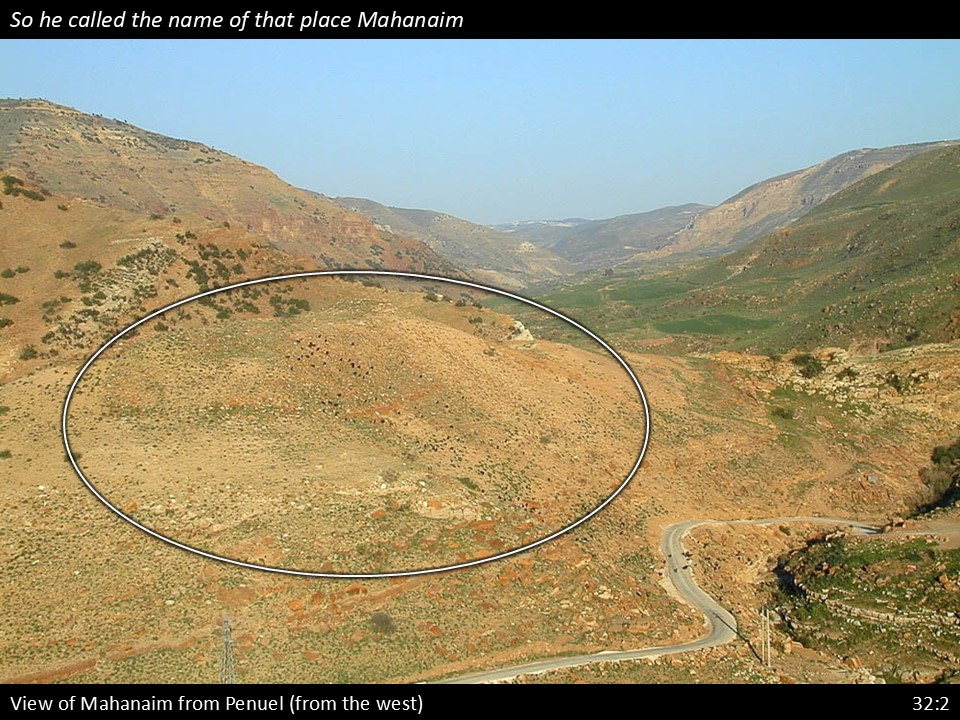
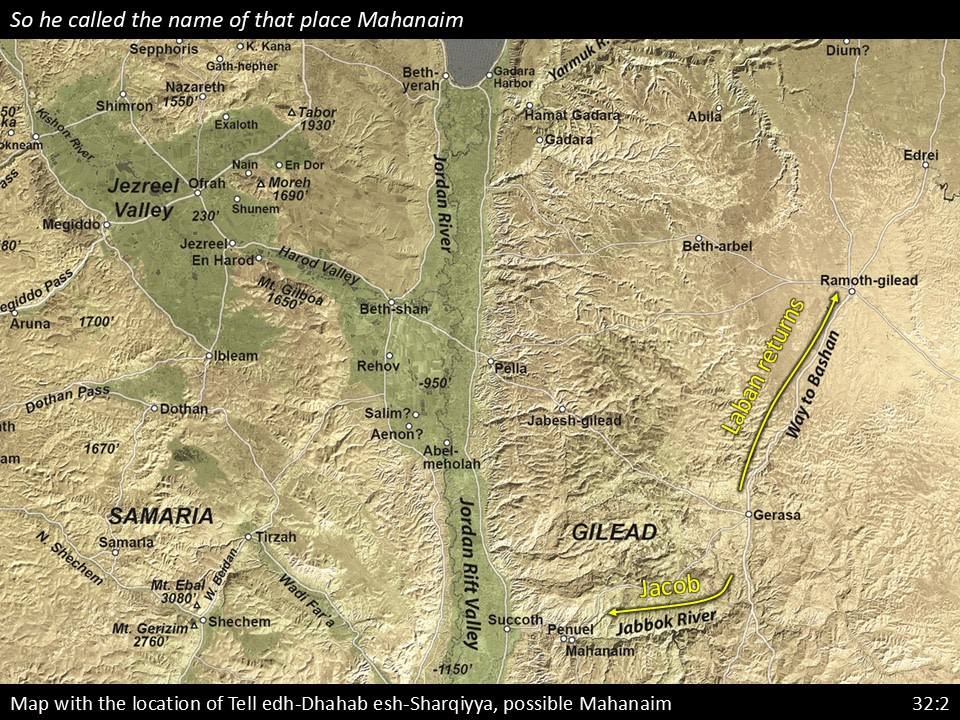
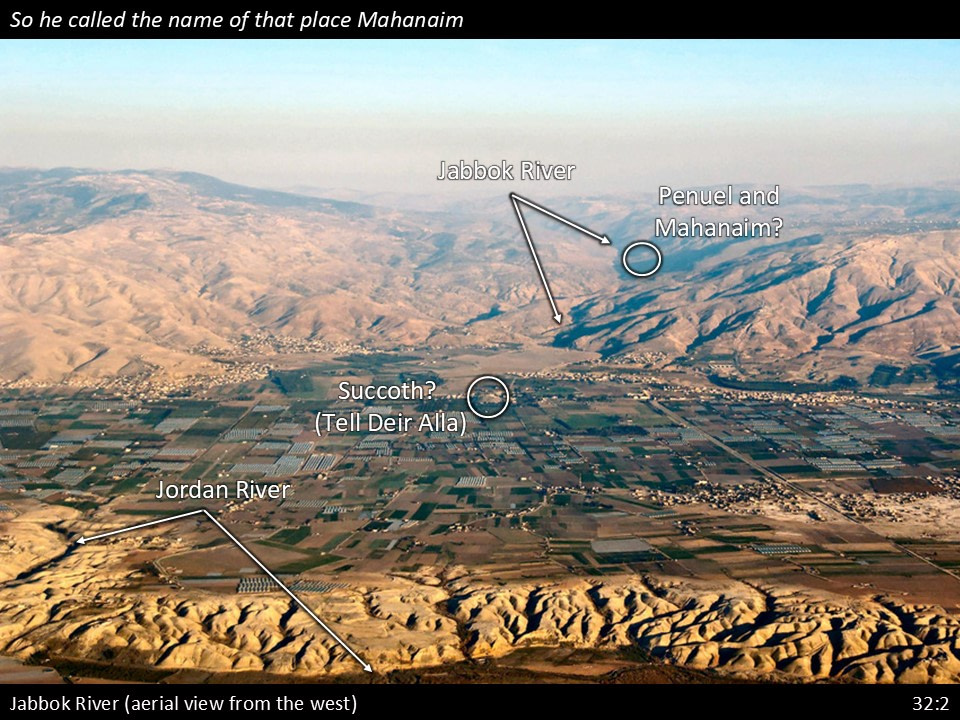
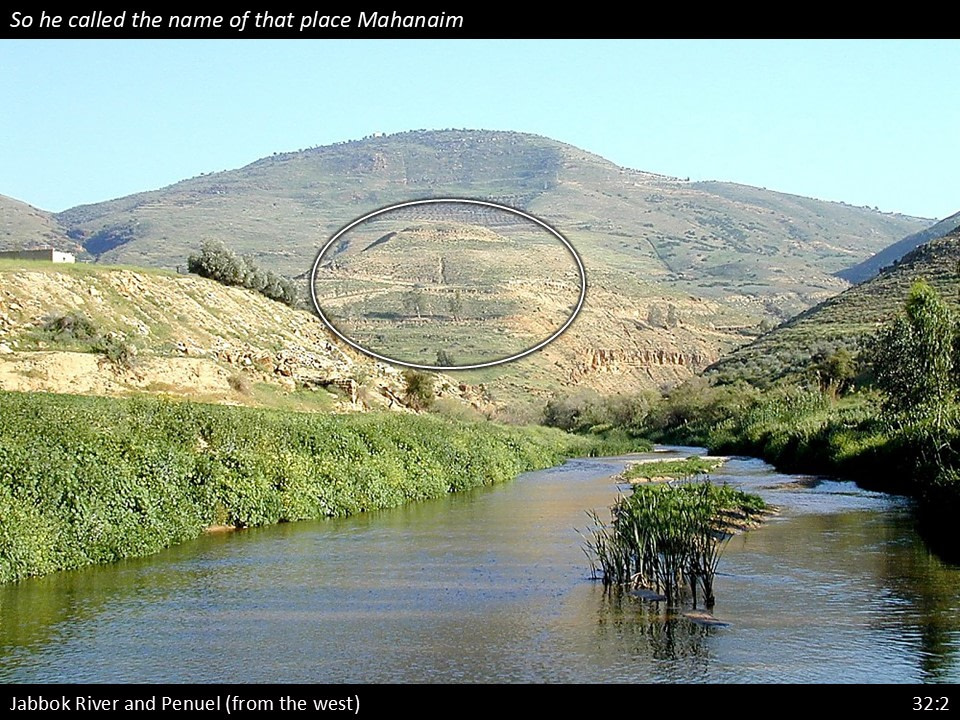
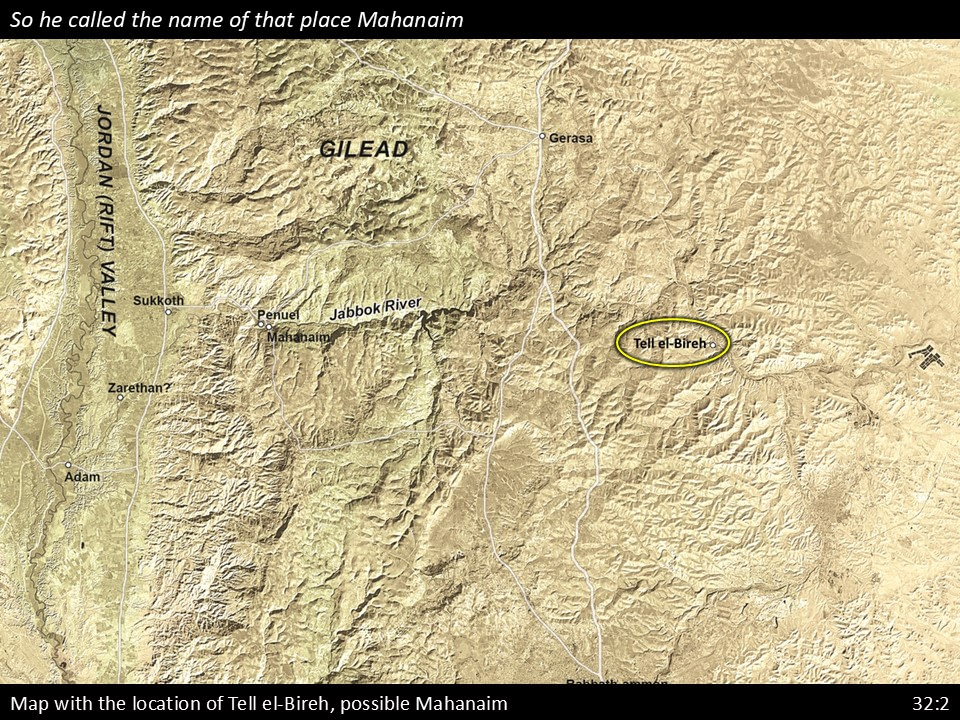
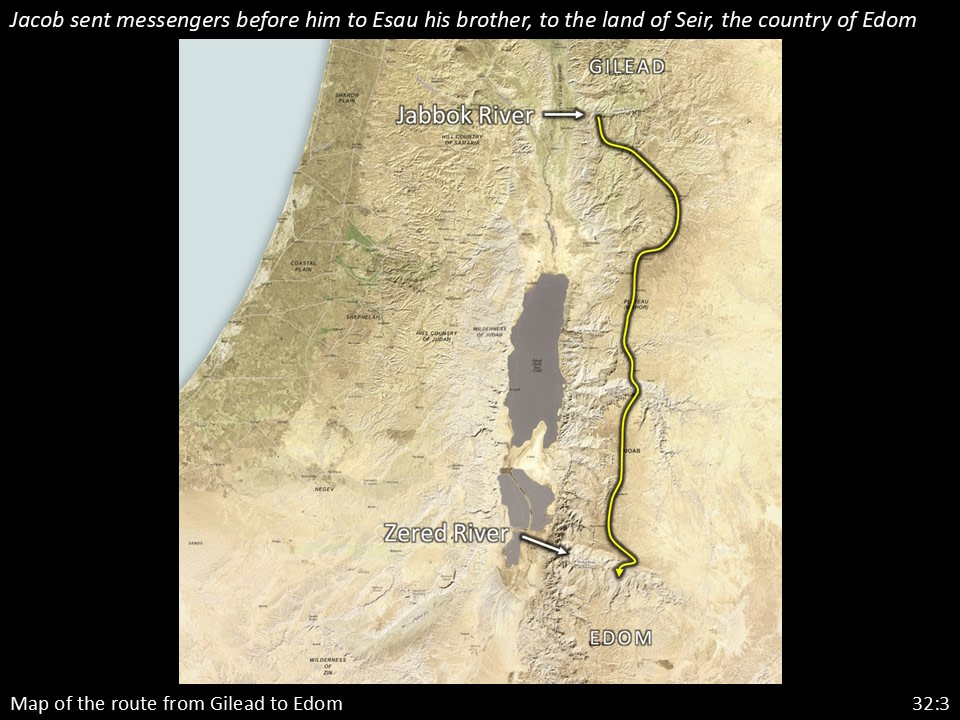
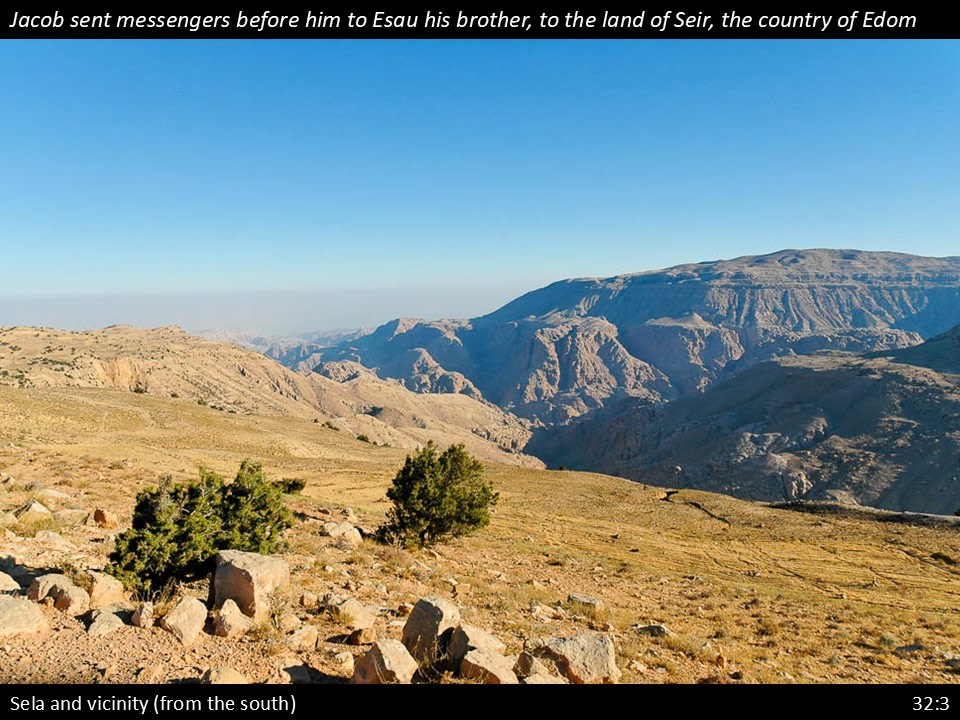
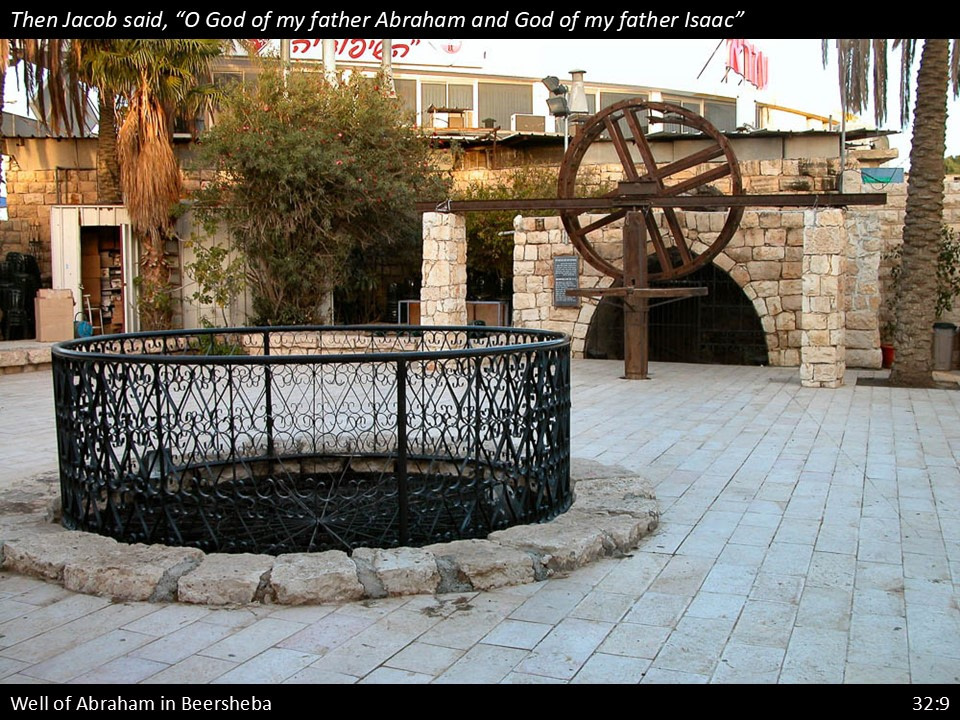
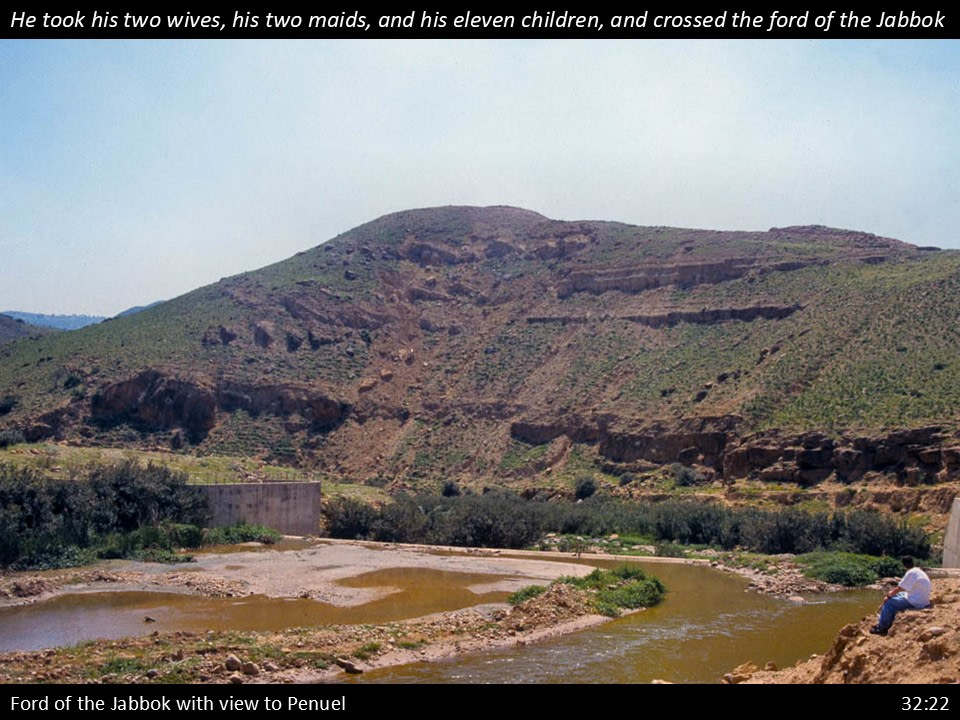
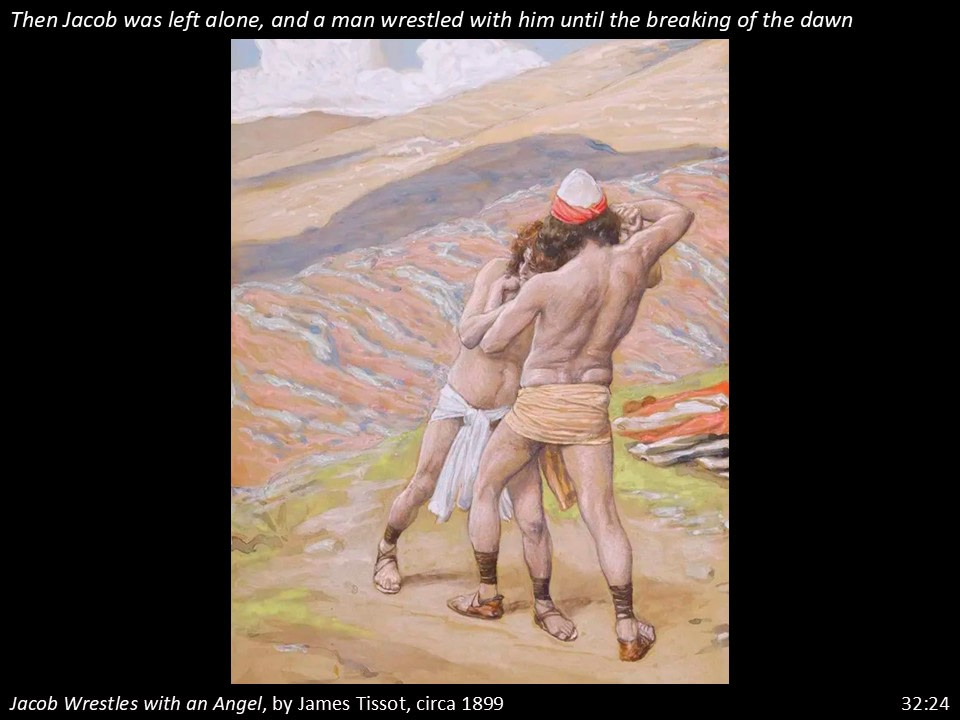
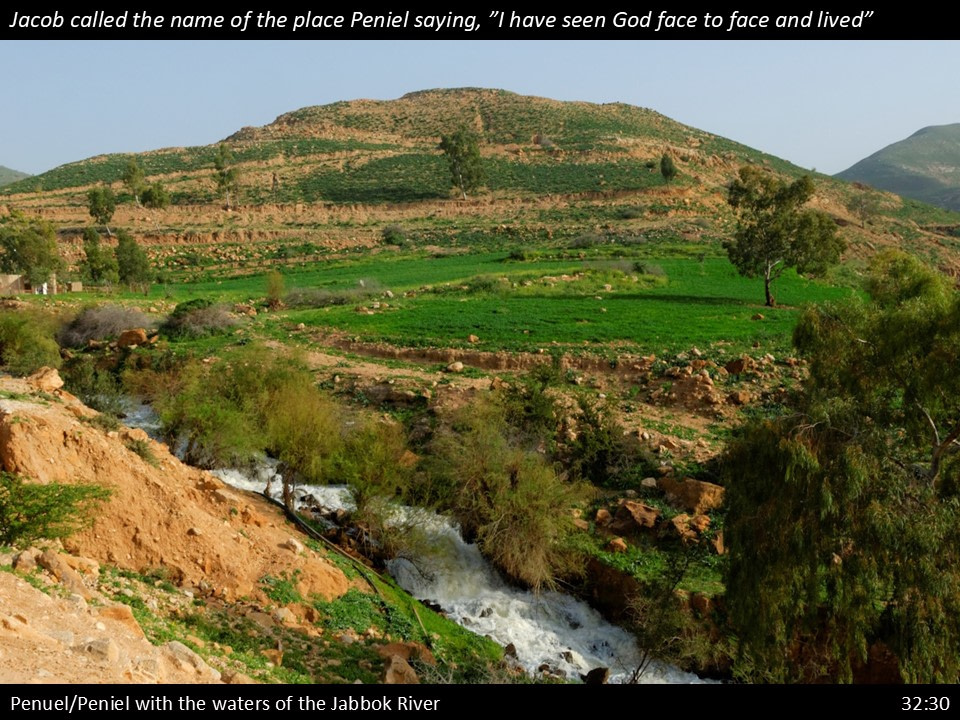
Chapter 32 recounts Jacob’s journey back to his native land, and his preparations for reuniting with his brother Esau.
In verses 1-23, Jacob prepares to be reunited with his brother Esau:
- Angels appear to Jacob a second time (Genesis 28:12). He called the place God’s camp and named it Mahanaim (meaning “Two Camps”).
- Jacob sent messengers ahead of him to the land of Seir, where his brother Esau lived with a message that he was returning with many flocks, herds, and servants hoping to secure the favor of Esau.
- Messengers returned to Jacob, saying Esau was on his way to meet them with 400 men.
- Jacob was afraid and distressed, so he divided his group into two, thinking if Esau attacks one group (or camp), the other group (or camp) can escape.
- Then Jacob prayed to the God of Abraham and God of my father Isaac, who told him to return to his land and promised to prosper him. He referred to himself as God’s servant, not worthy of God’s kindness and faithfulness, and asked God to rescue him from the hand of Esau.
- The next morning Jacob separated a large herd of animals for his brother Esau and instructed his servants to take them ahead of him and present them to Esau as a gift. He divided them into three groups, one in front of the other each to present their animals as a gift with the message from Jacob.
Note: Jacob tells the servants to refer to Esau as lord, and himself as Esau’s servant.
- Jacob felt after receiving these gifts, Esau might be willing to forgive him.
- That night as the as the gift was sent ahead, Jacob gathered his wives and family and sent them across the ford at Jabbok.
Note: The Jabbok was a small tributary that led to the Jordan River north of the Dead Sea. Jacob may have thought this offered his family another layer of protection from Esau.
In verses 24-32, Jacob wrestles with a Man at Peniel:
- Jacob was alone, and a man came and wrestled (fought) with him until morning. When the man saw he could not defeat Jacob, he touched Jacob’s hip and dislocated it. Then he told Jacob to let him go.
- Jacob refused to let the Man go until He blessed him.
- The Man told Jacob his name was no longer Jacob, but “Israel” because he had struggled with God and men and prevailed.
- Jacob asked the Man His name. The man refused but blessed Israel.
- Jacob named the place “Peniel” (Peniel means “Face of God”), saying he had seen God face to face and been delivered.
Note: Some translations say, Penuel. Penuel and Peniel are variations of the same word.
Genesis 33
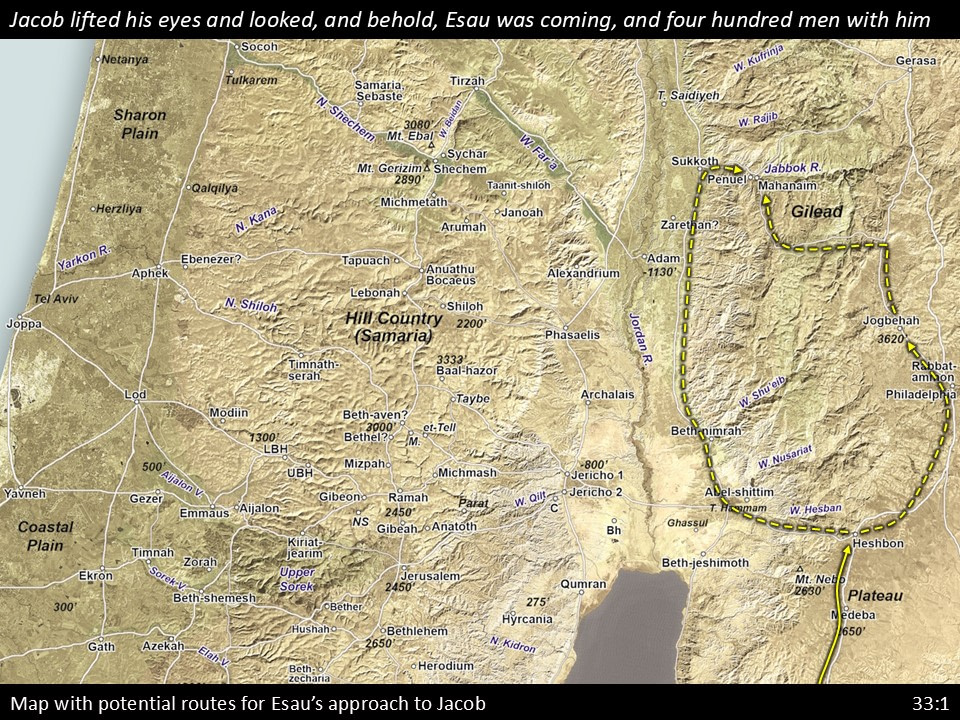
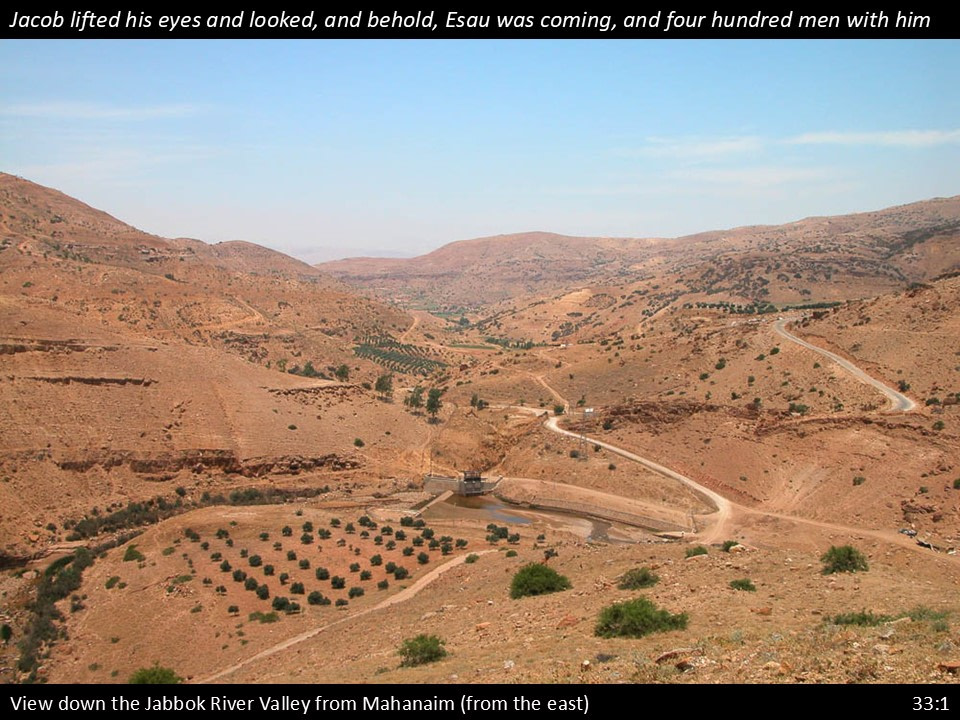
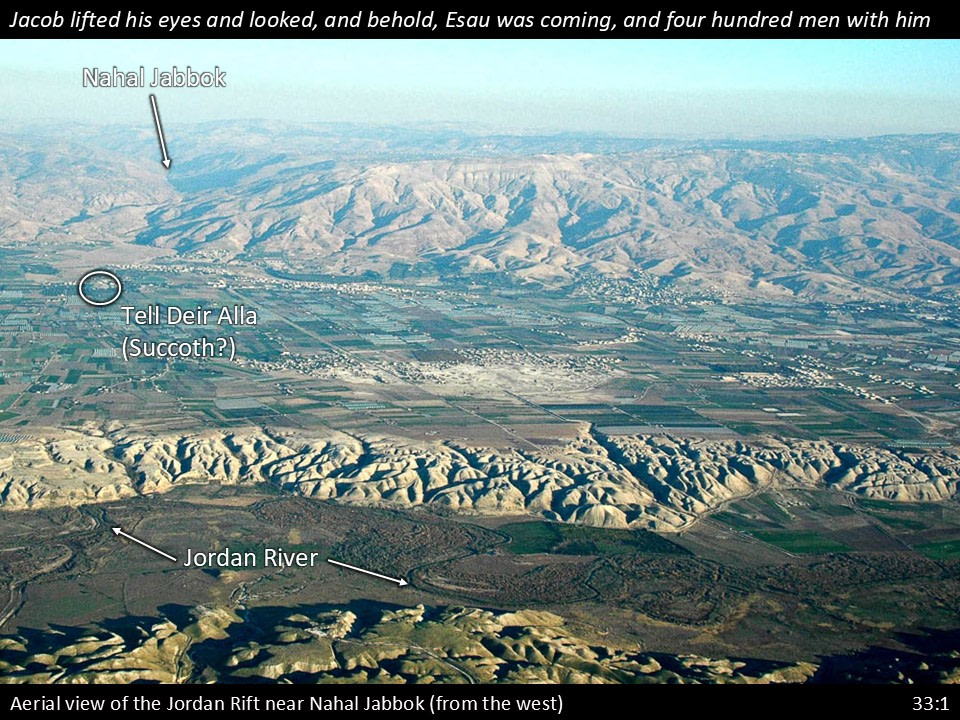
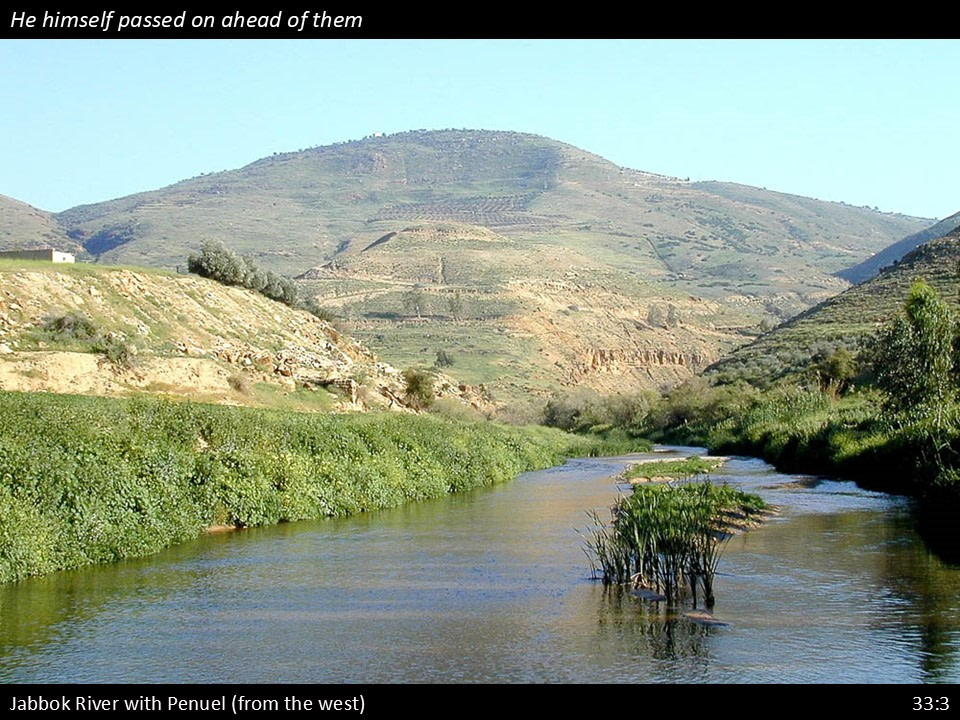
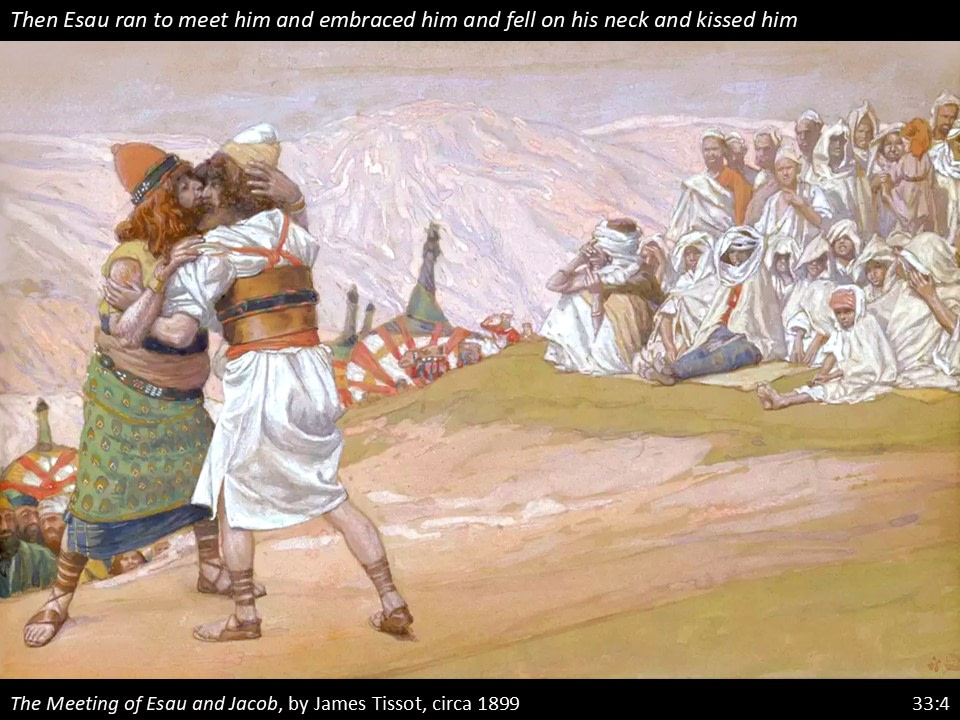
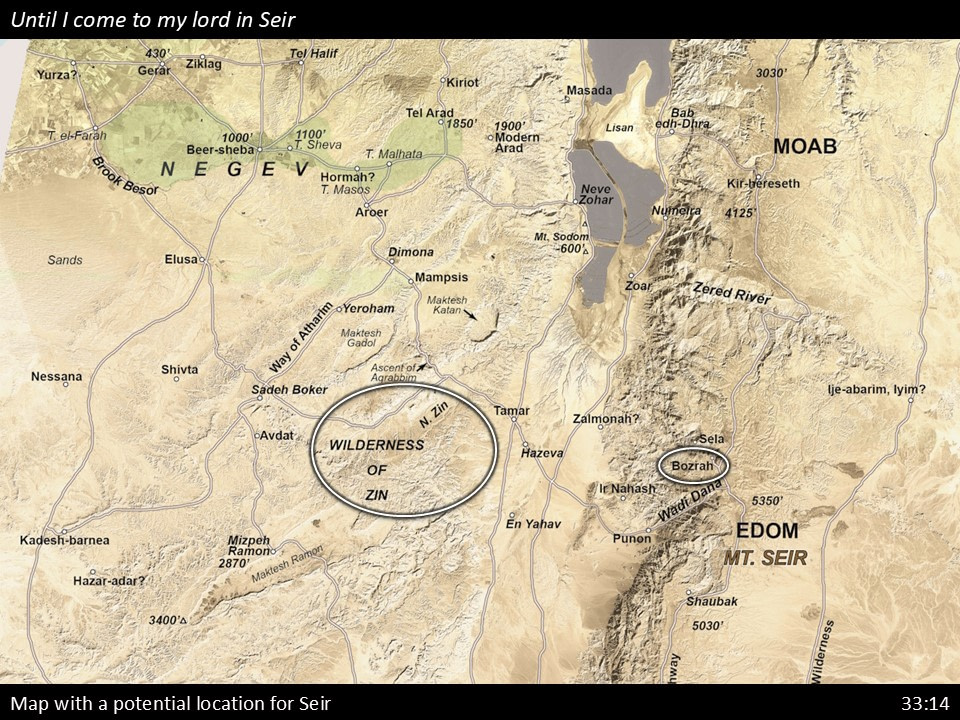
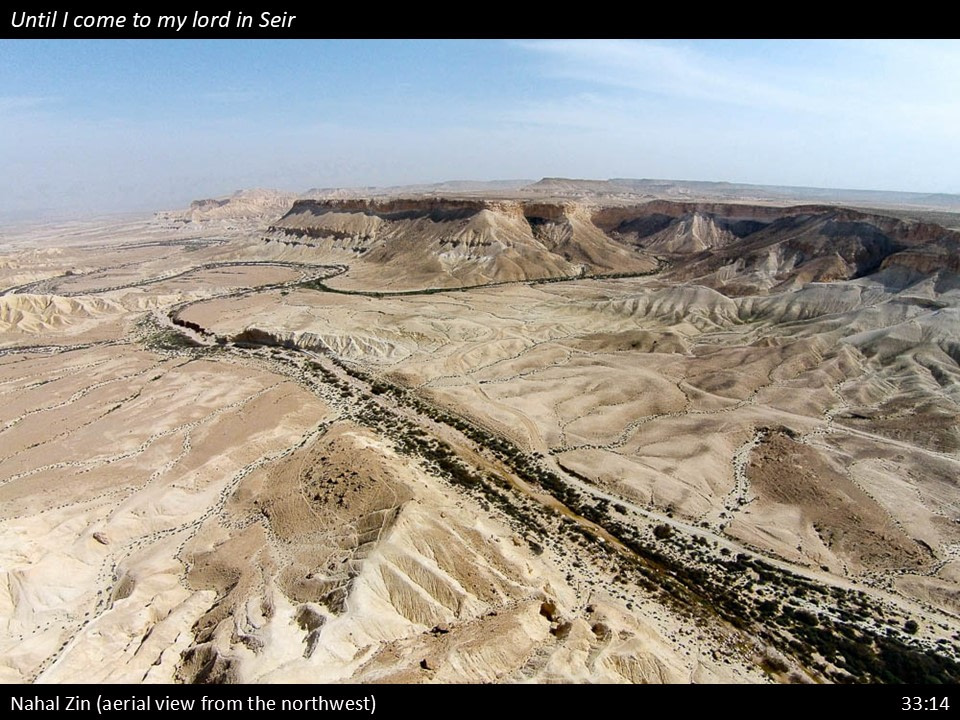
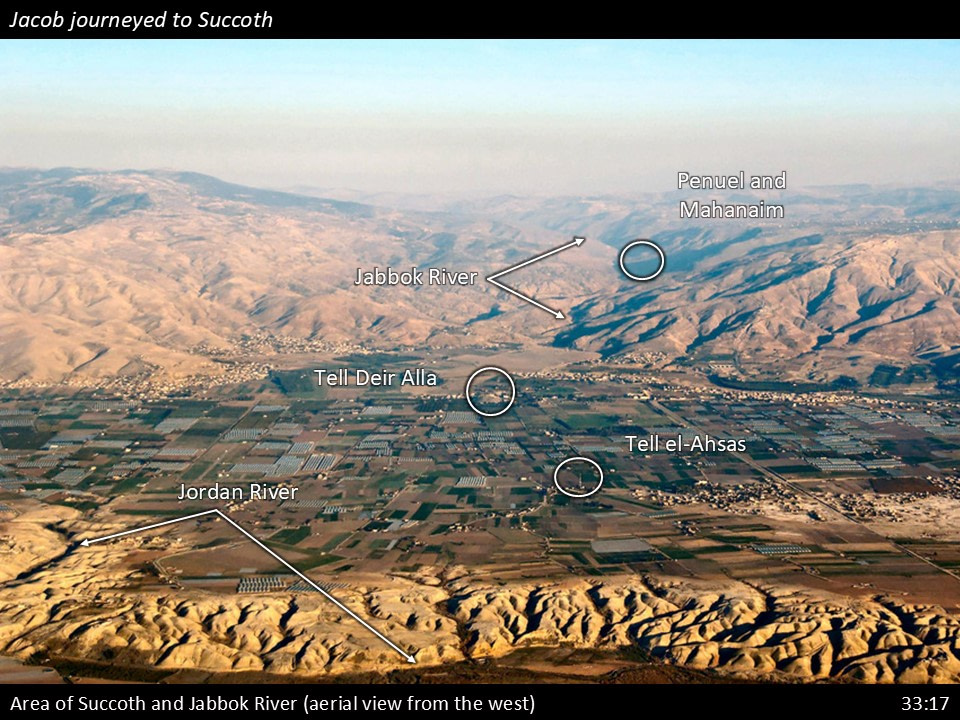
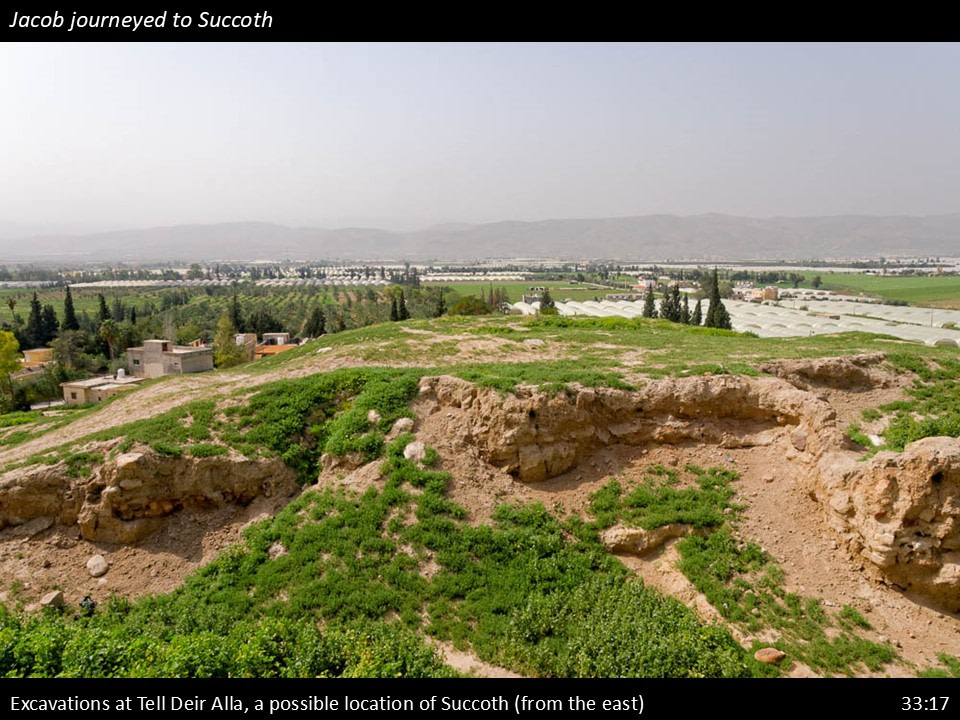
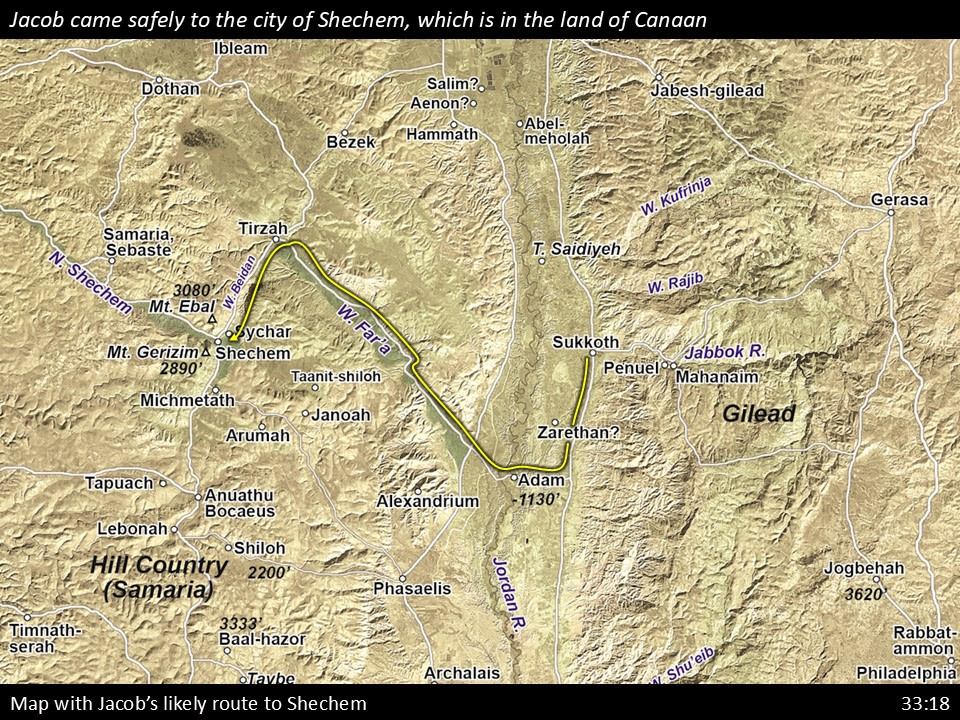
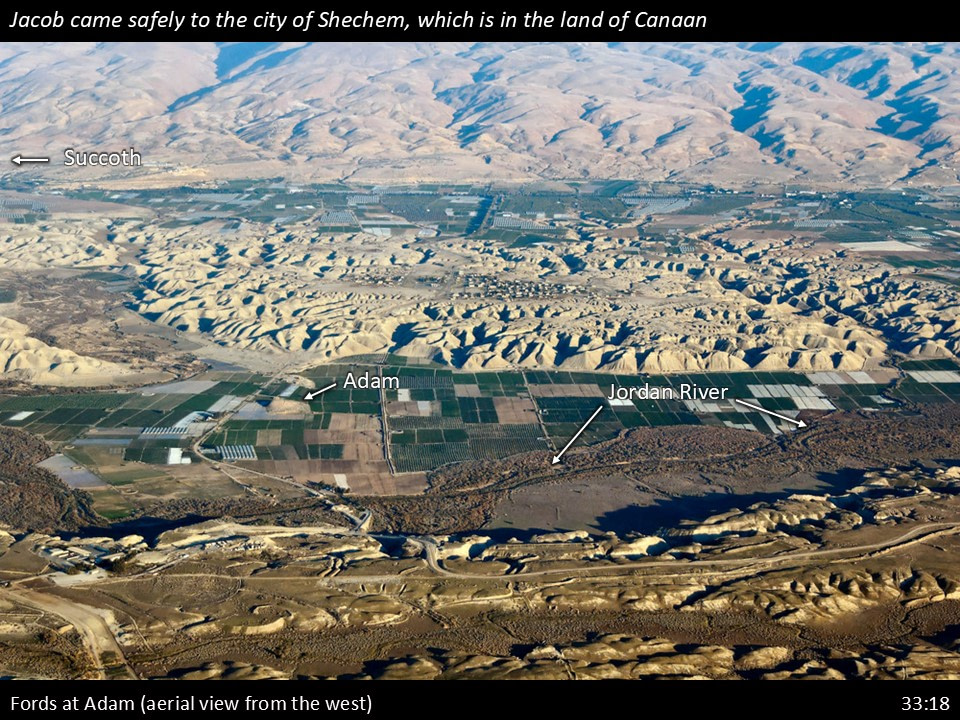
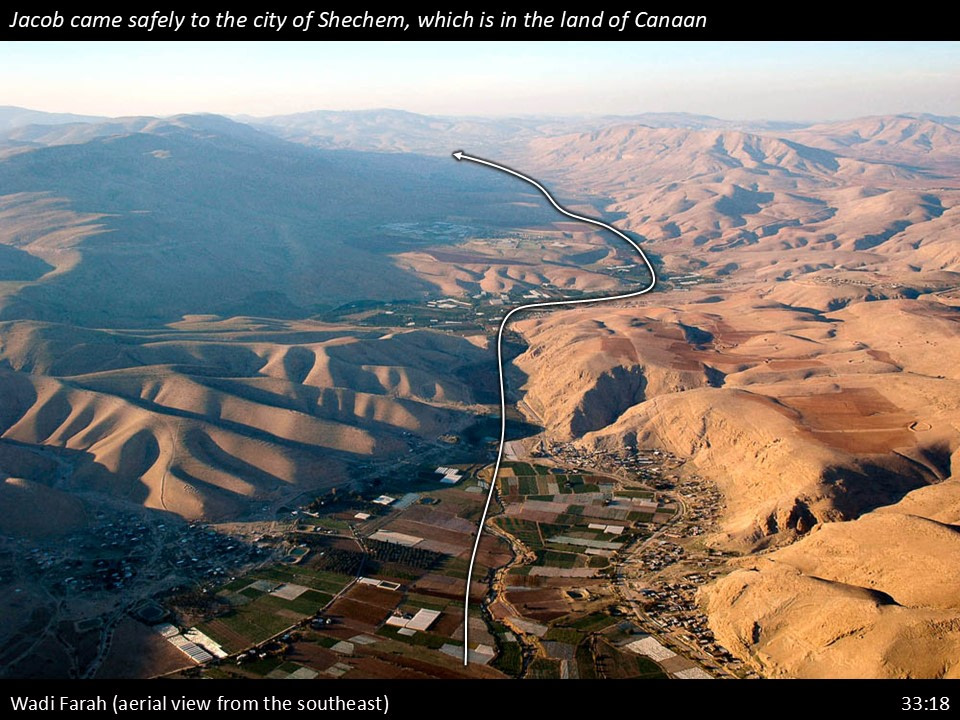
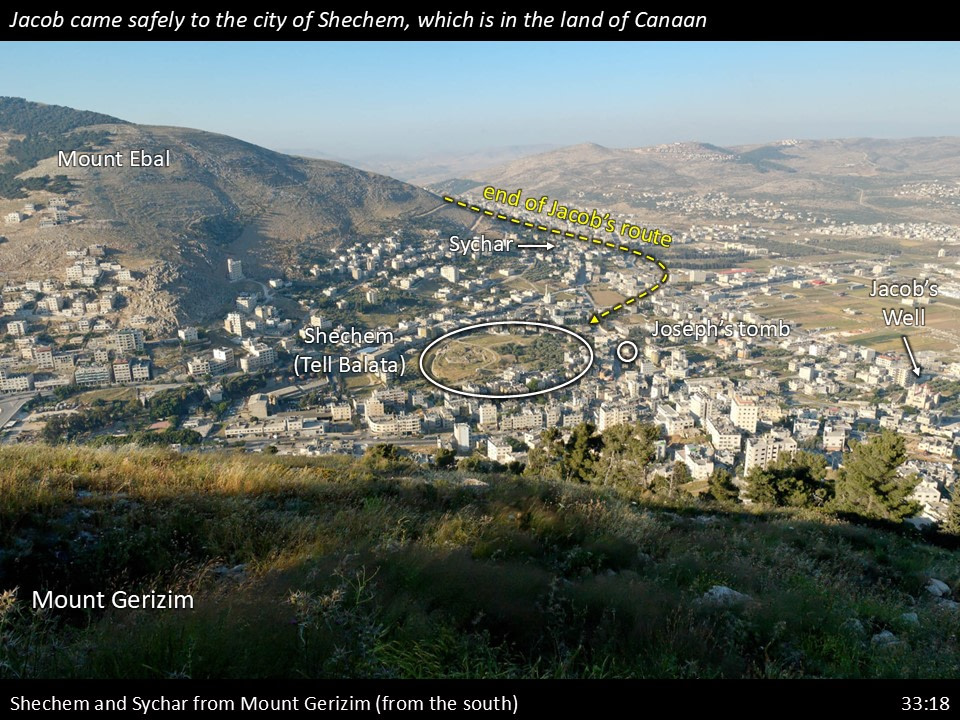
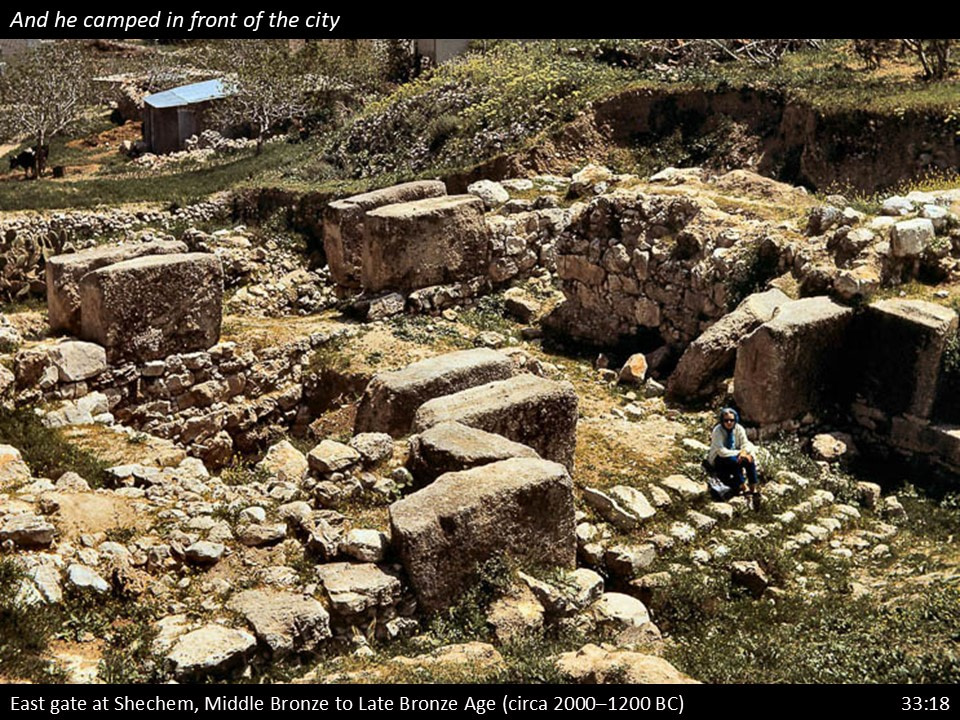
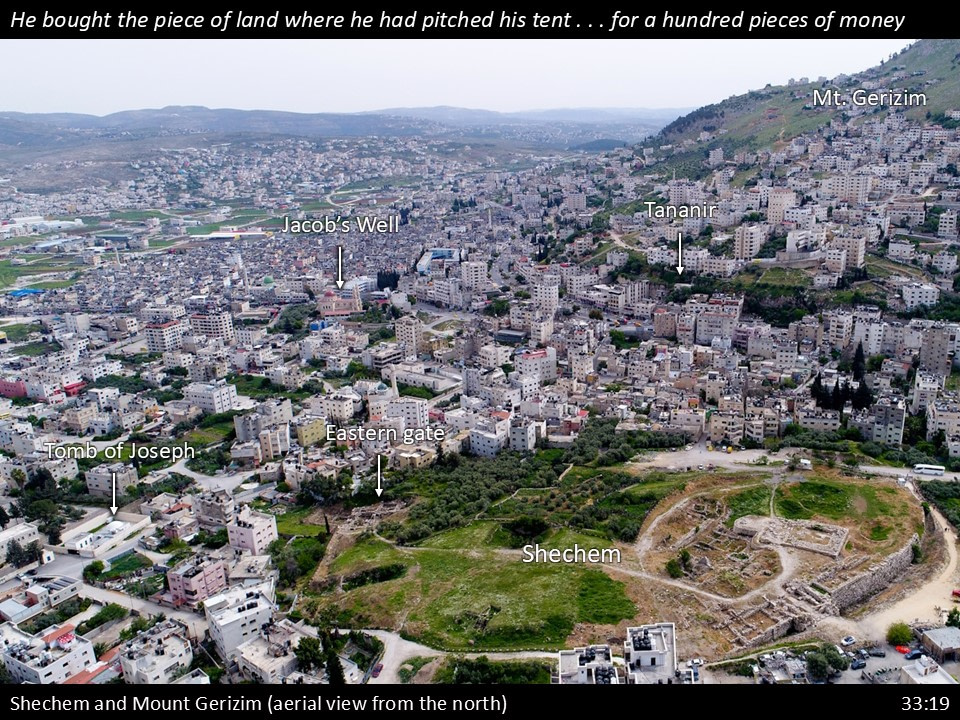
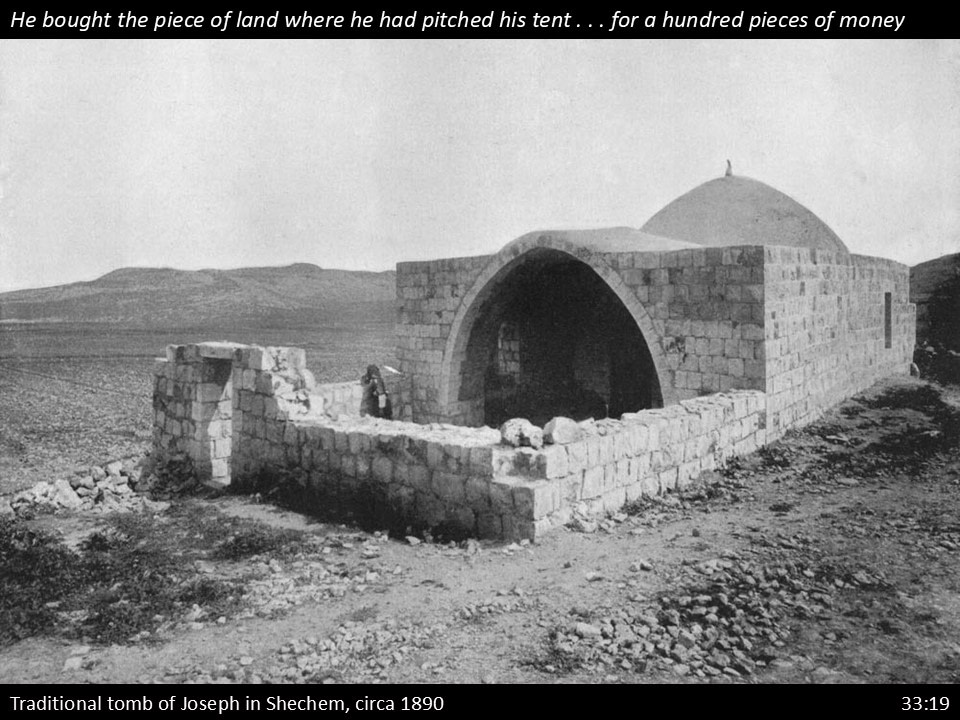
Chapter 33 recounts the initial reunion of Jacob with his brother Esau.
In verses 1-17, Jacob reconciles with Esau:
- Jacob looked up, and there was Esau coming toward him with 400 men.
- He divided the children among Leah, Rachel, Billah, and Zilpah. He put Billah and Zilpah and their children out first, then Leah and her children, then Rachel and her children.
- But Jacob went out first to meet Esau and bowed down to him seven times as he met him.
- But Esau ran to meet Jacob, hugged and kissed him, and they wept.
- Jacob introduced the entire family to Esau.
- Esau inquired as to the meaning of the procession he had met (the servants with gifts). Jacob explained he hoped to obtain the favor of his brother. At first, Esau refused, saying he had enough, but Jacob was insistent, and eventually, Esau accepted the gift.
Note: Jacob’s comment that seeing Esau’s face was like seeing God’s face, suggests Jacob realized that God had once again delivered him from harm.
- Esau suggested they move on and said he would go before Jacob.
- Jacob declined to go with Esau saying the women and animals cannot move that fast.
- Referring to Esau again as lord, Jacob suggested Esau go on ahead, and they would follow at a slower pace and meet up in Seir.
- That day Esau headed back to Seir.
- But Jacob headed to Succoth, where he built a house for himself and stalls for his animals.
Note: Seir was south, but Jacob headed a few miles north to Succoth east of the Jordan River. The word used for “stalls” indicates these were temporary stalls for livestock.
In verses 18-20, Jacob journeys on and settles near Shechem:
- Jacob completed his journey arriving safely in Canaan near the city of Shechem.
- He purchased a portion of a field from the sons of Hamor.
- He set up an altar and called it “El Elohe Israel” or “God, the God of Israel.”
Note: Shechem is between Mount Ebal and Mount Gerizim, where Abraham first camped when he entered Canaan.
Note: Jacob’s name was changed to Israel, but he is still being referred to as Jacob because his character has not yet changed to reflect his new name.
Note: Jacob was told by God to go to Bethel (Genesis 31:12), which was another 20 miles. Instead, he buys land that God had promised to give him.
Some thoughts for additional consideration:
- Jacob is willing to deceive others to advance what he believes is what God has promised.
- One minute he is praying to God asking for His help and protection, and the next minute he is making his own plans. He does not seem to have the faith to trust that God will protect and provide as He has promised.
- As a believer, you cannot manipulate, lie, and deceive people and think that it is acceptable.
What did you notice in your study today? Feel free to visit the website and leave a question or a comment.

